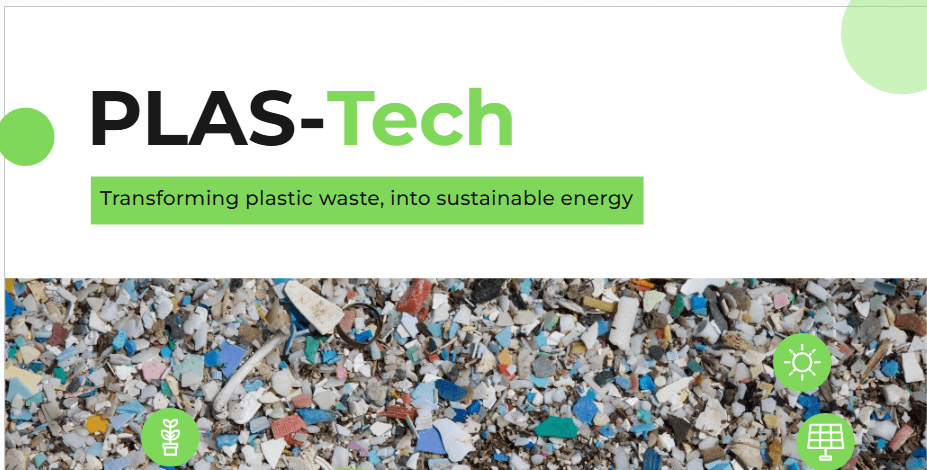
Circular Economy: Innovating for a Sustainable Future
What is a Circular Economy?
In a world grappling with resource scarcity and environmental challenges, the circular economy offers a transformative approach to how we design, produce, and consume. Unlike the traditional linear economy, which operates on a “take-make-dispose” model, the circular economy emphasizes designing systems that minimize waste and make the most of resources. Its principles include reusing, repairing, recycling, and regenerating materials, creating a closed-loop system that benefits both the planet and society.
By adopting circular practices, businesses and communities can significantly reduce their environmental footprint, enhance economic resilience, and drive innovation. The circular economy is not just about sustainability; it’s about redefining value and fostering a regenerative ecosystem where waste becomes a resource.
The Circular Economy Competition at ALU: A Platform for Changemakers
This year, the African Leadership University (ALU), in collaboration with the Bestseller Foundation, hosted the Circular Economy Student Ventures Program—a transformative initiative aimed at empowering student entrepreneurs. Designed as a 12-week virtual incubator program, the competition invited participants to develop solutions rooted in circular economy principles that address pressing challenges on the African continent.
The program provided a dynamic mix of learning opportunities, including:
Asynchronous Business Development Curriculum: Participants engaged with modular content covering business fundamentals, impact measurement, and sustainable model design.
Expert-Led Live Sessions: Industry leaders and subject-matter experts delivered masterclasses to deepen knowledge and spark innovation.
Mentorship: Each team was paired with a mentor who guided them through refining their ideas and preparing for the final pitch.
Seed Funding: Participants had the opportunity to pitch their ventures for a share of $25,000 in non-dilutive funding, a game-changing incentive for budding entrepreneurs.
What set this year’s program apart was its focus on creating actionable solutions. Teams were not only encouraged to think big but also to ensure their ideas were feasible and impactful. Weekly check-ins, office hours, and progress updates ensured accountability and fostered a sense of community among participants.
The Journey of Plas-Tech
In the context of Africa, where rapid urbanization and resource scarcity intersect, the circular economy is a game changer. It addresses critical issues like plastic pollution, deforestation, and energy access by transforming waste into valuable resources and creating opportunities for green businesses.
As participants in this year’s Circular Economy Student Ventures Program, my teammate Samuel and I were inspired by two interconnected crises in Kenya: the staggering amounts of plastic waste and the extensive deforestation caused by reliance on firewood for cooking. With Plas-Tech, we envisioned a way to address both issues by turning plastic waste into a cleaner, hotter-burning cooking gas.
Our project began with a simple question: What if the problem of plastic waste could become part of the solution to deforestation and energy poverty? This question led us to develop a working prototype using pyrolysis technology, an innovative process that converts waste plastics into usable fuel.
How the Technology Works
The core of our solution lies in pyrolysis technology, a process that breaks down plastics in the absence of oxygen to produce eco-friendly gas. Here’s how it works:
Plastic Collection: We source raw materials by collaborating with local waste collectors, providing employment and tackling urban pollution.
Heating in an Oxygen-Free Chamber: Plastics are heated in a sealed chamber to avoid combustion, preventing harmful emissions like CO2.
Stabilization: The gas undergoes temperature regulation and chemical reactions to ensure safety and usability.
Cooling and Storage: Finally, the gas is cooled and stored in cylinders, ready to be distributed as cooking fuel.
This process also produces tar as a valuable by-product, which can be used in road construction, adding another layer of sustainability to our model.
The Pitch That Won Hearts
During the pitch, we highlighted the urgent need for Plas-Tech in Kenya’s energy market. With 80% of households relying on firewood, charcoal, and kerosene, our solution offers a healthier, cost-effective, and environmentally friendly alternative.
We emphasized our unique value proposition, including:
A higher calorific value, meaning our gas burns hotter and longer, saving customers money.
A sustainability model that subsidizes prices for rural communities using profits from urban sales.
The ability to combat climate change by reducing deforestation and diverting plastic waste from landfills and oceans.
Our passion for the project resonated with the judges, and our clear plan to scale Plas-Tech in the future, combined with our working prototype, secured the $4,000 grant.
